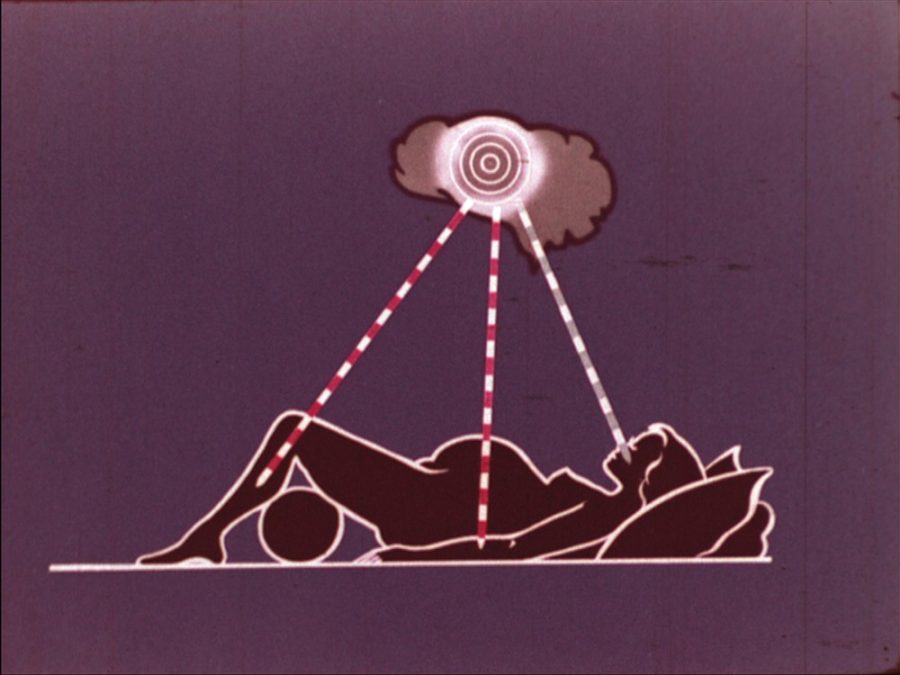Correction: Feb. 6, 2016 — The sentence “The audience gets to know terms such as twilight sleep…and a psychoprophylactic method developed in Russia...” has been changed to say “The audience gets to know terms such as twilight sleep…and a psychoprophylactic method developed in USSR-era Ukraine…” to correctly represent what The Motherhood Archives actually depicts.
197 E. Toole Ave. is home to David Sherman and Rebecca Barten’s venue, Exploded View microcinema. The project that was launched by the couple in 2013 has been screening experimental short films, most of which are neither widely known by the general public nor are easily accessible.
Exploded View is starting its spring 2016 season with yet another set of experimental movies. On Feb. 4, the microcinema screened Irene Lusztig’s “The Motherhood Archives” — a film based on a montage of American, Soviet and French video archives on childbirth in the 20th century.
The movie traces the history of medical progress starting with the invention of anesthesia in 1846 and delves more into specific practices aimed at easing women’s pain during childbirth throughout the century.
The audience gets to know terms such as twilight sleep — a method developed in Freiburg, Germany where doctors medicate women in labor so they have no memory of experiencing pain when they wake up — and a psychoprophylactic method developed in USSR-era Ukraine that involves a mix of conversation with doctors and hypnosis to eliminate psychosomatic labor pain.
Lusztig started working on the film in 2007 when she was pregnant. As she was trying to learn more about pregnancy, she realized that she “walked into a space of intense ideology and propaganda” with people suggesting and telling her what to do. In her attempt to get away from the ideology surrounding pregnancy, she turned to archival movies that she bought off eBay Inc. and which, after six years of work, turned into “The Motherhood Archives.”
“The Motherhood Archives” is more than simply a cinematic homage paid to the evolution of medical practices. Motherhood and childbirth experiences are inextricably woven into a social context.
The film features footage that was used as didactic material for women on how to approach their pregnancies. Throughout the movie doctors are seen talking about labor pain as something that should be eliminated from the birth-giving experience with the help of medications, yet they also describe labor pain as a by-product of anxiety — an unnatural state of mind produced by a wrong psychological mindset that women have about their labor. Women are instructed on the ways they should breathe, move, dress and even do their hair while pregnant.
Given that the archives come from the previous century, the patronizing approach toward women comes as no surprise. However, in the light of the latest CDC announcement that urges women of childbearing age who are not on birth control to stop consuming alcohol, it’s a wonder whether anything has really changed.
To this day, women are policed on smoking or drinking before, while and after they are pregnant, as if drinking and smoking men are not involved in the process of conception at all. Lusztig, nevertheless, has a more positive view of the agency that women experience over their bodies, noting that today women can control the process more by doing prior research rather than believing everything the doctor says.
Regardless of your views on the current state of affairs, Lusztig succeeds at bringing the important questions about socially constructed ideas of motherhood and childbirth to the table for an audience to reflect upon.
Exploded View microcinema is going to screen throughout spring. For the calendar of events, click here.
Follow Jamelia Rizatayeva on Twitter.









